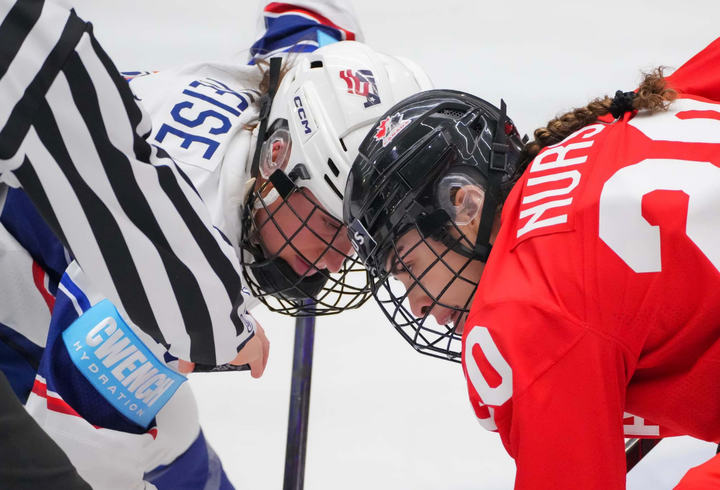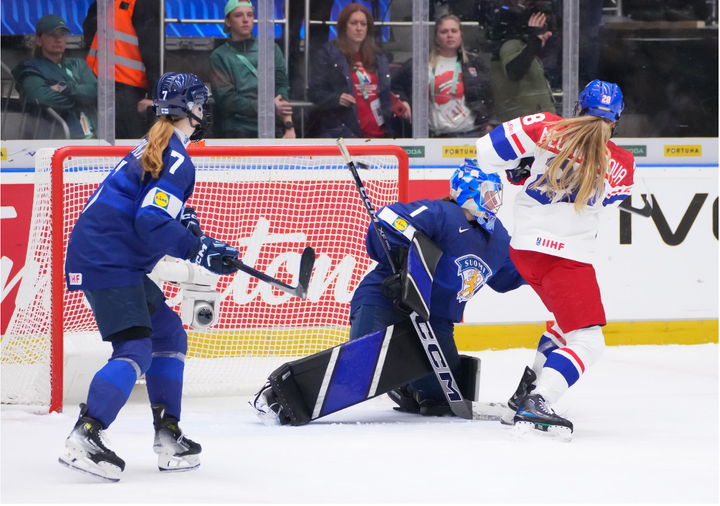SDHL Team or maid service? Leskands IF women expected to clean stands after men’s games
wut. just...wut.
“Women’s team has to clean the stands after men’s games.”
It sounds like a cruel and sexist joke, the type of remark that would be tossed out by one of the ‘get back in the kitchen’ crowd after half a beer and the bitter realization that they couldn’t make their own sandwich if they were starving to death. But this is no joke, and there’s nothing funny about it.
For the women of Leksands IF, it’s reality several times a season. Despite playing at the highest level of women’s hockey in Sweden and a promise of more equality, business at Leksands will continue as usual next season, as confirmed by club chairman Åke Nordström:
“We assume they do.”
Adding Insult To Injury
Leksands players Hanna Sköld, Emelie Berlin, Ida Nikula, Madeleine Hall, and Josefin Söderberg went on record with DT to air their grievances, and they painted an unflattering picture of the organization just six months after Nordström promised more resources would be directed towards equality.
So far the only tangible evidence of that promise is team-provided exercise gear and a Leskands-branded bag. That’s a far cry from financial compensation, improved development structure, and the improved marketing Nordström spoke of, and the players are keenly aware of it:
“You stop hoping,” said one disappointed player. “We are the first team, but it is not noticeable.”
“It is tragic that we are so used to this,” shared another Leksands player.
The Leksands IF men’s squad has spent the past five years waffling between promotion to the top-level SHL and relegation back down to the second-tier HockeyAllsvenskan. They finished 14th in SHL standings in 2017 and have been relegated yet again. Meanwhile, the women’s team has been an SDHL staple since 2008.
Leksands CEO Christer Plars spoke to Sverige Radio and attempted to quell some of the furor by explaining that “everyone must participate and contribute to the club” and that the players are divided into groups so not everyone is cleaning up after every game.
In other words, the women, who are not paid a salary and work or study full-time in addition to playing professional hockey, are expected to do unpaid janitorial labor on top of their other obligations.
“It is tragic that we are so used to this.”
Plars was quick to point out that other teams in the organization, including the men’s and junior teams, also do this type of “volunteer work,” because it saves money. He also says the club is open to dialogue and negotiation about the issue, but as of now the plan hasn’t changed.
His contrition tour continued to Hockey Sverige. “The girls will clean up after the men, that sounds strange ... The gentlemen have other duties, such as cleaning the gym. Everyone contributes and helps out.”
Fostering a culture of individual contribution is one thing, but Plars is woefully oblivious to the insulting nature of what the women are being asked to do. It plays right into sexist attitudes about the value of women’s work. The optics are nothing short of dreadful. Even if it’s volunteer work, how voluntary is it, really? Paid or not, the SDHL players do a job, and they understand there’s a power structure in play.
If, as he claims, the money the club saves on hiring cleaners goes back into the organization, just how much of that will go back to the women? Although Plars claims the club has reached an agreement with CCM to get the women more equipment, he neglected to specify any other concrete plans beyond “a lot of investing” in improved conditions.
Treating players like the professional athletes they are instead of treating them like unpaid domestic servants would be a good place to start.
UPDATE: Plars’ quote was clarified via a translator. The women will clean the stands four times per season. The tone-deaf nature remains unchanged.





Comments ()